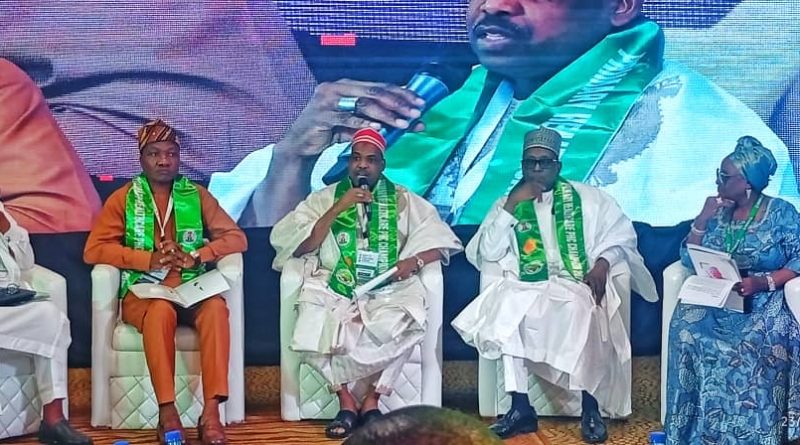Media urged to drive accountability, collaboration in Nigeria’s health reform
The Executive Director of the International Society for Media in Public Health (ISMPH), Moji Makanjuola, has called for stronger collaboration between the media, policymakers, and development partners to accelerate progress toward Universal Health Coverage (UHC) in Nigeria.
Speaking at a High-Level Media Advocacy Dialogue in Abuja on Thursday, Ms Makanjuola highlighted the media’s power to shape public perception, promote accountability, and amplify evidence-based reforms within the health sector.
She said the media remains the connective tissue between policy, public perception, and accountability.
Ms Makanjuola added that beyond its traditional role of information dissemination, the media shapes the national conscience, ensures transparency, and sustains public engagement in the health reform process.
“Every well researched documentary, every investigative feature, every community radio dialogue that informs citizens on immunisation, family planning or antenatal care contributes directly to saving lives,” she said.

She noted that journalism should move beyond reporting challenges to highlighting innovations and solutions that inspire reform.
Ms Makanjuola also highlighted how data-driven storytelling and evidence-based reporting can strengthen governance and improve maternal and child health outcomes.
She also stressed that effective communication between the media and policymakers is essential for sustaining public engagement and building trust in government health initiatives.
The High-Level Media Advocacy Dialogue was jointly organised by the Federal Ministry of Health and Social Welfare, the International Society for Media in Public Health (ISMPH) and the Engender Health Consortium.
Media as accountability partners
Also speaking, Nigeria’s Coordinating Minister of Health and Social Welfare, Muhammad Pate, called for responsible journalism that balances criticism with constructive narratives that inspire change and national pride.
Mr Pate, a professor said the media can help shape a narrative of possibility and renewal, not just lamentation.
“Constructive reporting can mobilise citizens and leaders alike to rebuild our health system.”
He also cautioned against corruption and misuse of health resources at the facility level, warning that such practices undermine national progress.
Mr Pate said the government has worked to expand direct financing for primary healthcare centres, but citizens must ensure these resources reach their intended beneficiaries.
READ ALSO: Experts call for stronger gender equity, improved access to reproductive health services
In his remarks, Uche Amaonwu, Nigeria Country Director at the Gates Foundation, described the media as “accountability partners,” urging journalists to track health budgets, investigate stockouts of essential medicines, and spotlight unpaid health workers to keep public policy responsive.
“When the media tracks budgets, investigates supply gaps, or highlights unpaid health workers, it turns public policy into public awareness,” Mr Amaonwu said.
“That awareness drives citizen action and ultimately compels leadership to act.”
He said empowering journalists with the right data, access, and capacity to follow the money is critical to strengthening Nigeria’s PHC system.
“Our collective goal should be to empower the media to track performance, tell the human stories behind the numbers, and hold all stakeholders accountable,” he said.

